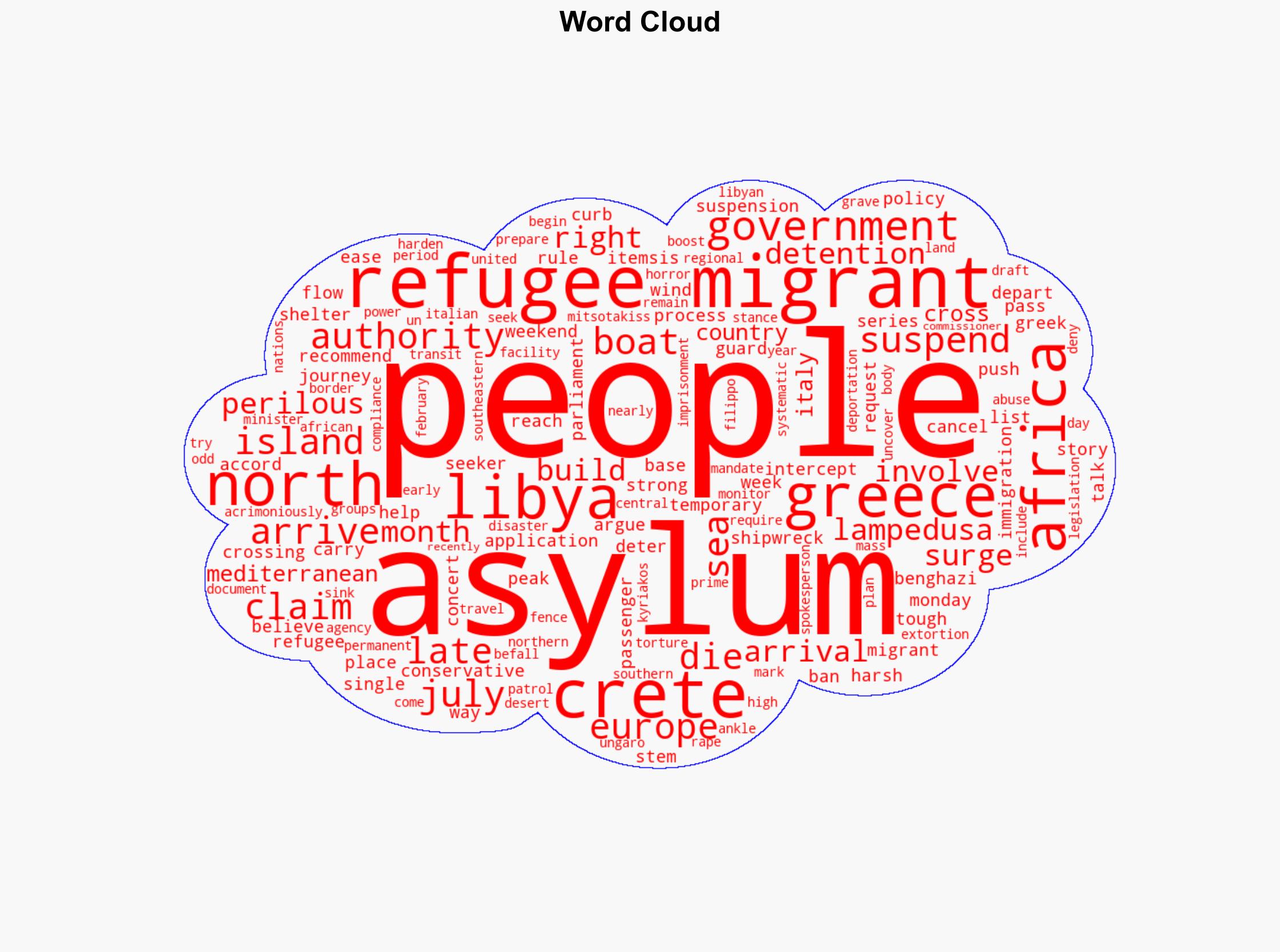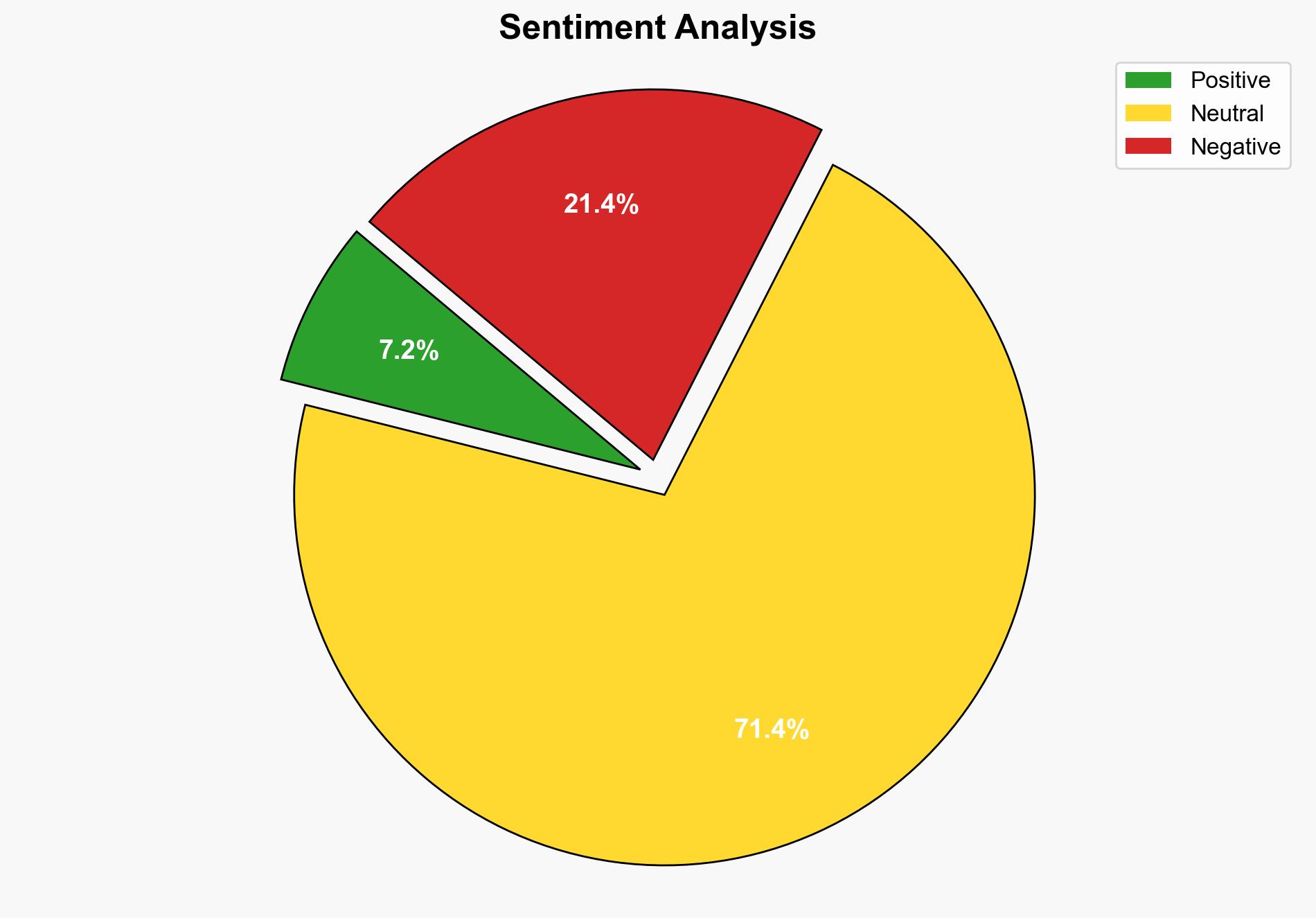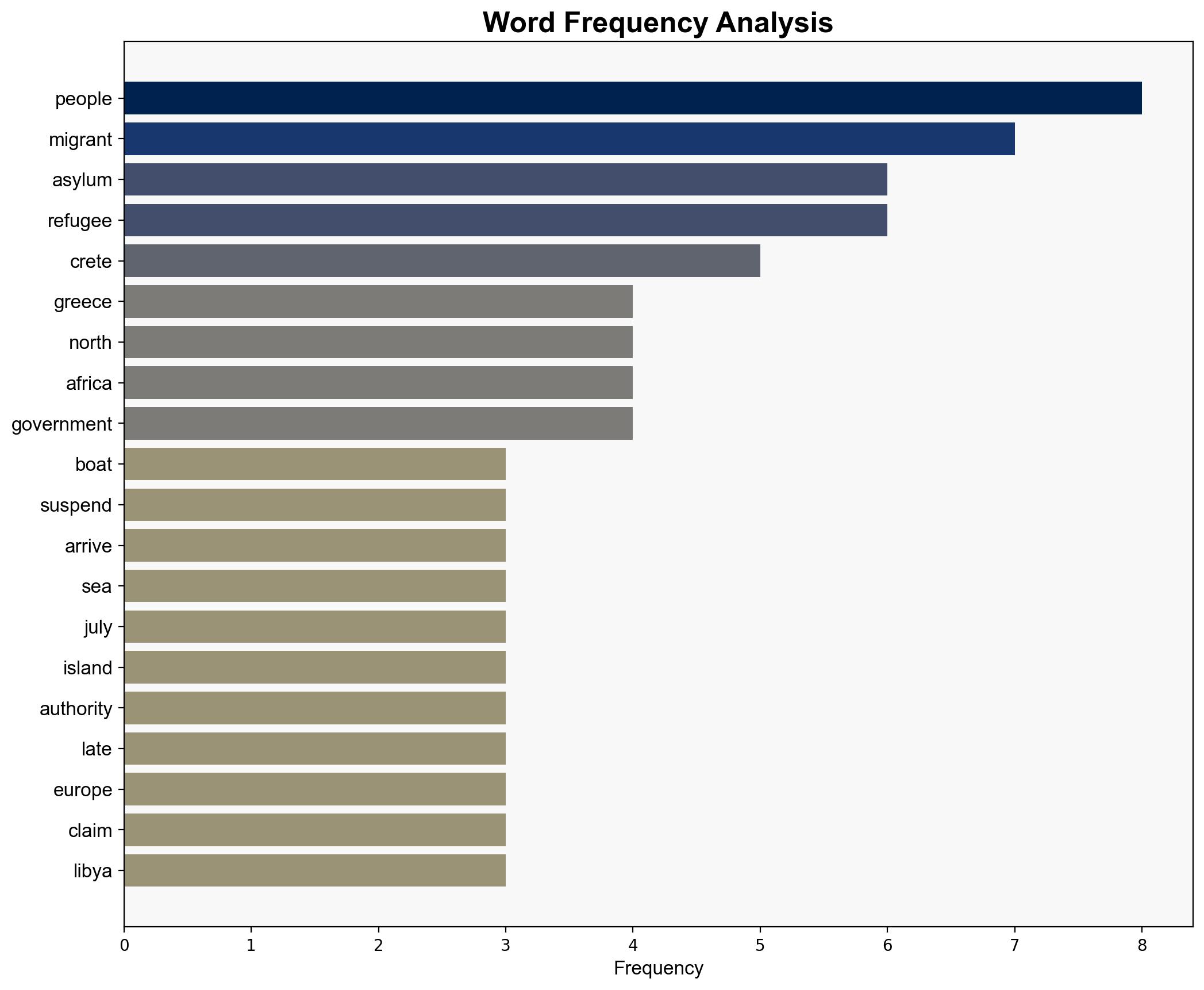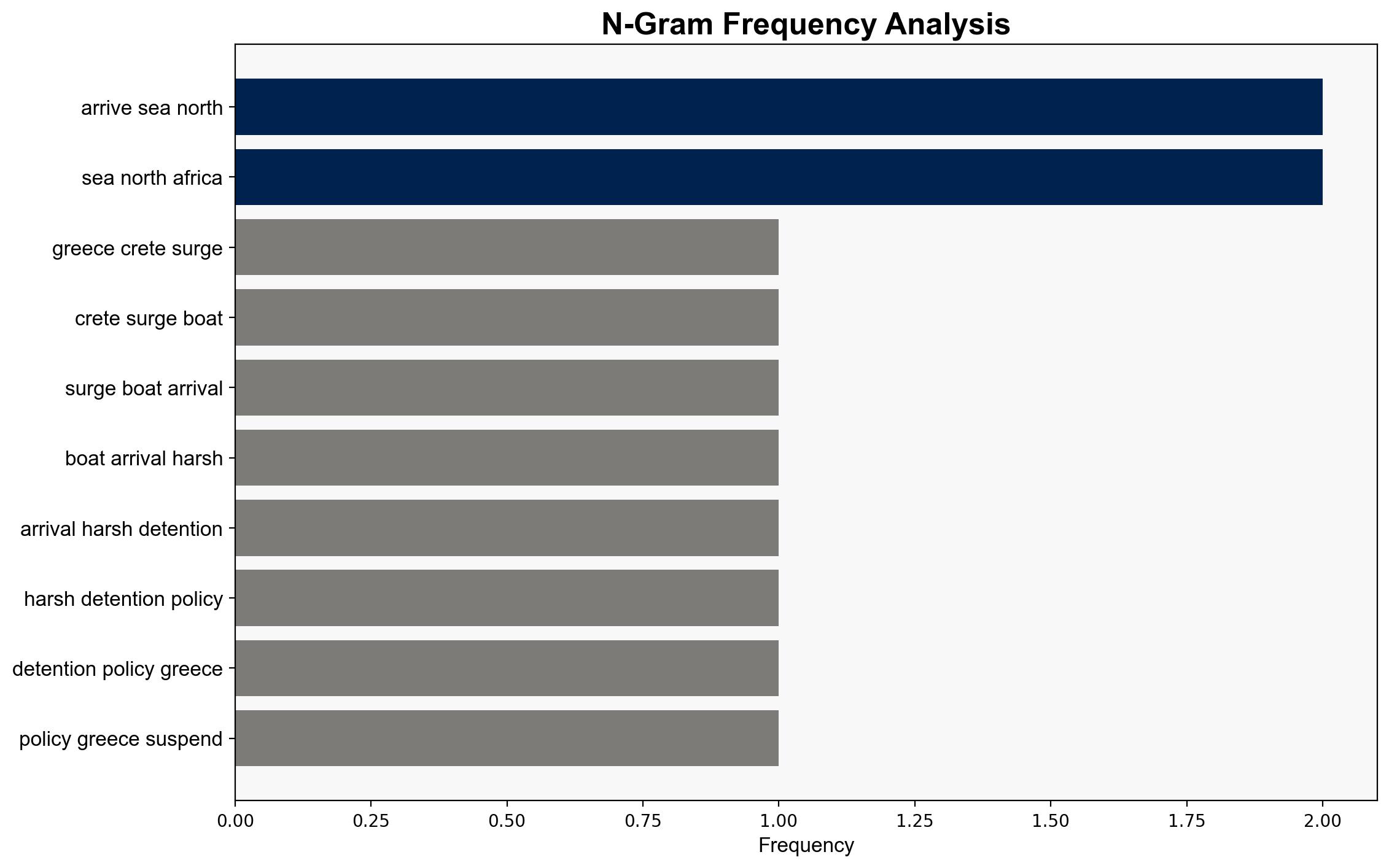Greeces Crete sees surge in boat arrivals despite harsher detention policy – Al Jazeera English
Published on: 2025-08-18
Intelligence Report: Greeces Crete sees surge in boat arrivals despite harsher detention policy – Al Jazeera English
1. BLUF (Bottom Line Up Front)
The surge in boat arrivals on Crete, despite Greece’s harsher detention policies, suggests that these measures are not effectively deterring migration from North Africa. The most supported hypothesis is that external factors, such as conditions in Libya, are driving the increase in arrivals. Confidence level: Moderate. Recommended action: Enhance regional cooperation to address root causes of migration and improve monitoring and response capabilities.
2. Competing Hypotheses
1. **Hypothesis 1:** The surge in arrivals is primarily due to deteriorating conditions in North Africa, particularly Libya, which are pushing more individuals to attempt the perilous journey to Europe.
2. **Hypothesis 2:** The increase in arrivals is a result of the ineffectiveness of Greece’s new detention policies, which fail to deter migrants due to lack of enforcement or perceived leniency.
Using ACH 2.0, Hypothesis 1 is better supported as it aligns with documented reports of systematic abuse and instability in Libya, which are strong push factors. Hypothesis 2 lacks supporting evidence as the new policies are still in early stages of implementation.
3. Key Assumptions and Red Flags
– **Assumptions:** It is assumed that the harsher detention policies are effectively communicated and enforced. It is also assumed that migrants are aware of these policies before departure.
– **Red Flags:** The absence of direct evidence linking policy changes to migration patterns. Potential bias in reporting from Greek authorities aiming to justify policy measures.
– **Blind Spots:** Limited insight into the decision-making processes of migrants and smugglers, and the role of regional actors in facilitating or hindering migration.
4. Implications and Strategic Risks
– **Patterns:** Continued instability in North Africa could sustain or increase migration flows.
– **Cascading Threats:** Overwhelmed local resources on Crete could lead to humanitarian crises and increased tension with local populations.
– **Potential Escalation:** Failure to address root causes could lead to more aggressive policies, potentially violating international human rights norms.
– **Geopolitical Dimensions:** Strained relations between Greece and Libya, and potential EU involvement in migration management.
5. Recommendations and Outlook
- Enhance intelligence sharing and cooperation with North African countries to address root causes of migration.
- Improve monitoring and response capabilities on Crete to manage arrivals humanely and efficiently.
- Scenario Projections:
- **Best Case:** Stabilization in Libya reduces migration pressures.
- **Worst Case:** Increased arrivals lead to humanitarian and security crises on Crete.
- **Most Likely:** Continued arrivals with gradual policy adjustments by Greece.
6. Key Individuals and Entities
– Kyriakos Mitsotakis (Prime Minister of Greece)
– Filippo Ungaro (UNHCR spokesperson)
7. Thematic Tags
national security threats, migration policy, regional stability, humanitarian response





